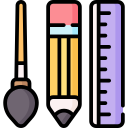A Classroom Story: Designing an Encyclopedia-First Assignment
Students had to read two encyclopedia entries on the same concept from different publishers. They highlighted overlapping claims and diverging emphases. The discussion shifted from “who’s right” to “what counts as sufficient evidence,” a small, powerful pivot toward critical methodology.
A Classroom Story: Designing an Encyclopedia-First Assignment
Next, students identified apparent contradictions and classified them as definitional, methodological, or historical. Most contradictions dissolved once terms and periods were aligned. The exercise taught intellectual humility: disagreement often reflects framing, not failure. Try it and share your classification results.










